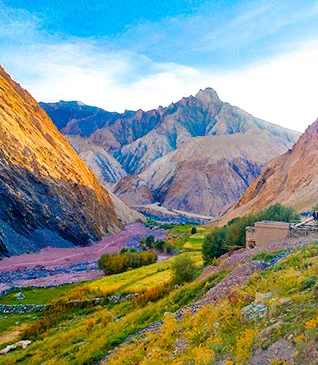We step into the Himalayan kingdom wonderstruck every time how boundlessly nature has gifted these terrains with beauty and resources. Mile after mile of never-ending virgin greens, clean air full of oxygen, mineral-rich waters of mountain streams, wildflower carpet and strawberry shrubs—suddenly there is inexhaustible life all around! Then at a closer look, the junk-ridden underbelly of paradise reveals itself—plastic bags, throwaway water bottles, medical waste, sanitary napkins, layers of oil—floating on the water, stuck in the earth, or glistening among leaves on the forest floor.
The glaring carbon footprints from the visits the mountains receive are not without greater consequences and how could we at Trek the Himalayas sleep easy over this fact? Like every year, under directives from our supervisors Rakesh and Sandip, in support of the Green Trails initiative of sustainable trekking and in collaboration with our trekkers, we ran a cleaning mission on three of the most popular treks this June—the Kanchenjunga Trek Route in Goecha La in Sikkim, the Pangarchulla route in Uttarakhand, and Roopkund.
Kanchenjunga Trek Route to Goecha La
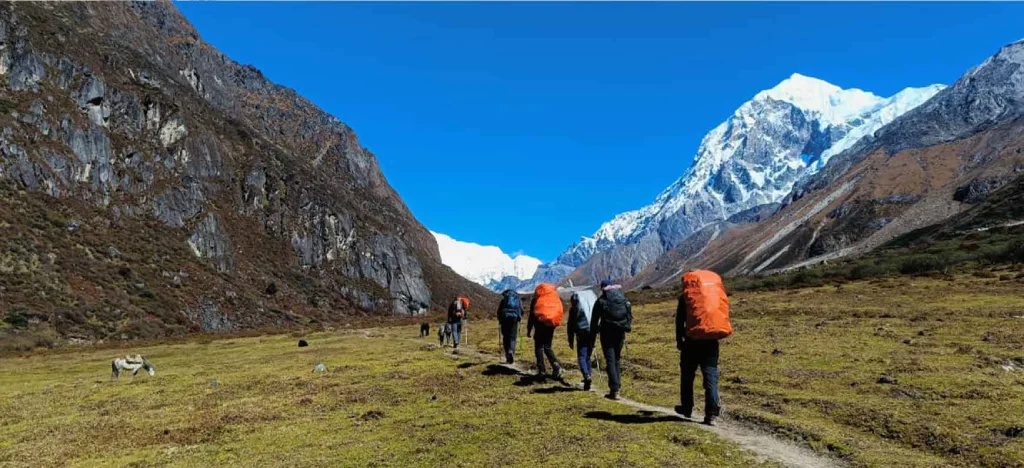
This is the most celebrated trek route in North Sikkim, well frequented by mountain lovers seeking a glimpse of the regal Kanchenjunga peak and the Kanchenjunga National Park surrounding. Only a few years ago it was a virgin trail free from the stresses of pollution but now it’s a different story.
.webp)
The abundant spring water pools on the way have become unreliable as a source of drinking water, the campsites amid dense forests are dotted with garbage-filled pits, and at this peak of the trekking season in June, the deep resonating silence of the mountains is punctured by loud sonic booms from throngs of trekkers. Also, we noticed several evidence of bonfires around the campsites of Sachen to Dzongri though making fire inside the National Park is a strict no-no declared by the forest department to minimize the hazards of summer forest fires.
On asking the local troop of cooks, kitchen staff, and helpers coming with us from Yuksom and the villages nearby, we got to know that after camps are off after each trek, they either bury or burn up plastic waste left on the site. These men are the key functionaries at each post-camp scene and their education about proper waste management was regrettable.
How We Did It
Our initiative at Goecha La under the leadership of Trek Leaders started with the involvement of our crew of local men in camp cleaning.
We broke up into groups of threes and twos and surveyed the entire area for plastic-based non-biodegradable waste on
one hand and recyclable green waste on the other. We kept two large drums in the middle of the campsite labeled for two different kinds of waste and carried around two jute sacks with each group for picking rubbish in an already segregated way.
After three hours of toil, we had a truckload of waste and had to add another drum to the line. We had to segregate it for three types of processing- compost, recycling, and incineration.
The nearest municipal waste management station was at Yuksom, where we sent only the sacks labeled as recyclable plastic waste and burn-worthy waste while the green waste from the kitchen was collected for compost.
The Roopkund Trail
.webp)
Roopkund has been a trekkers’ magnet now for years on end and there is practically no end to the taxation the huge trekking interest has put the trail under. The campsites are littered from corner to corner and it took us a whole team and a whole day to sweep it clean.
The abundant snow in the site made it all the more difficult to pick out each little thing and put it into the basket but with strong dedication coming from an unconditional love for the mountains, we made it happen!
How We Did It
In the Green Trails batch, we had extra hands and extra mules to carry back home all that we found polluting the invaluable landscape. We started on the mission by reaching the very first campsite and made it a practice to go about collecting rubbish in set teams after reaching rest the point every single day.
.jpg)
We maintained waste segregation for the categories—compost, incineration, and recyclable, collecting these in several gunny bags hauled to the mule each day, then transported to base.
When it started to drizzle, plastic head gears were innovated out of the pile collected. Ready in our floaters and charged with the spirit of the day, we didn’t dither to step in the water when plastic flypapers were found crashing against boulders in streams.
The nearest Municipal Corporation junkyard in Lohajung was a hard way down from our uphill campsites and the weather condition was turning from favorable to harsh during the whole period without warning. The best moment in the entire episode was when all heads got together to chalk out an effective way to carry out the mission to the end!
Pangarchulla and Winter Kuari Pass Snow Treks
The Pangarchulla and Kuari Pass trail was still covered in snow when we visited this area in early June. The Winter Trekking Season here had started in December and since then hundreds have crossed the snowfields to the peak and getting back by the beautiful Gorson Bugyal to Auli route. In the shadowy enclosures of Talli Forest, there is a singular campsite by a natural water point where tents are set for several trekking groups to Pangarchulla as well as Kuari Pass. Obviously, the forest had unresolved issues with accumulating waste and the snow cover made it worse.
How We Did It
.webp)
On both days of camping in the Khulara and Talli forests, we cleaned the campsite before leaving using shovels to work through the slush. The most polluted areas were the banks of the water point where so many trekking groups were doing their dirty dishes and it took us a while to clean the waters off sewage rubbish.
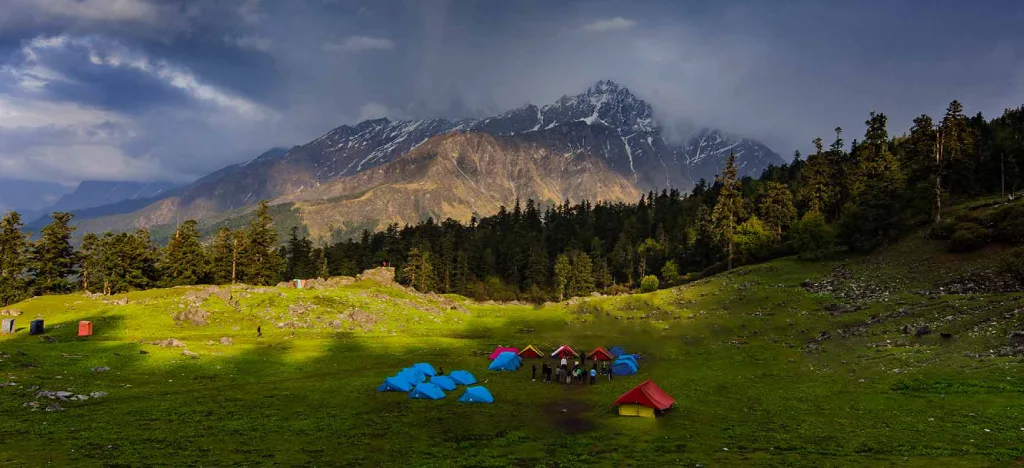
For the summit day, at the end of the line in the sweeping end of our group, we appointed two members. They carried guns while all of our trekkers were given pouches. On reaching rest points, the trekkers emptied their pouches in the big bags. Encouraging collection, we played little games and kept treats of chocolate and cashews for the ones who collected the most number of wrappers.
.webp)
From Khulara camp on the last day of our trek, segregated recyclables and waste to be incinerated were sent to Joshimath guest house on mules back and then to nearest Municipal Corporation.
The Green Trails mission turned out to be a great success this June against all odds and this was inconceivable without wholehearted participation from our trekkers. What we learnt hand in hand united by team spirit this time will surely go a long way, not forgetting to propagate the message of sustainable living wherever we are.
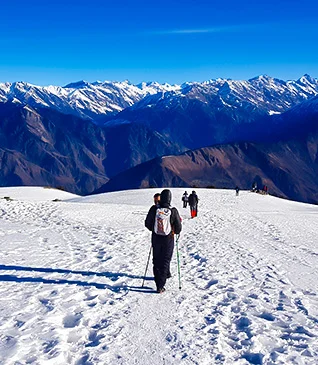
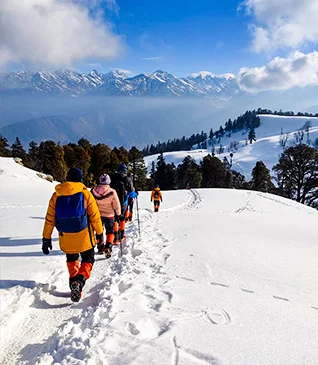
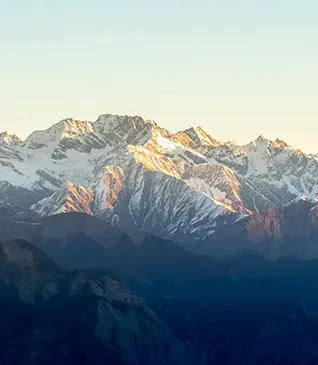
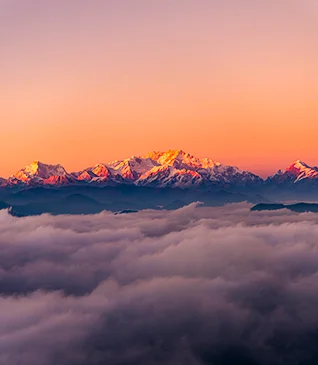
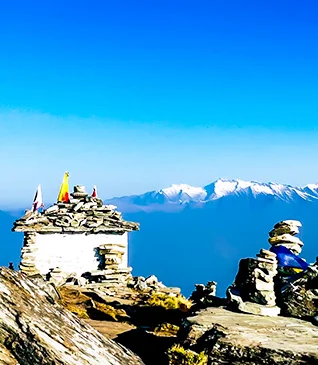
.webp)
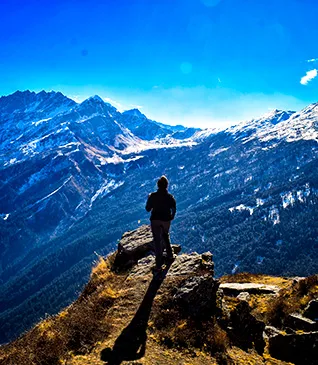
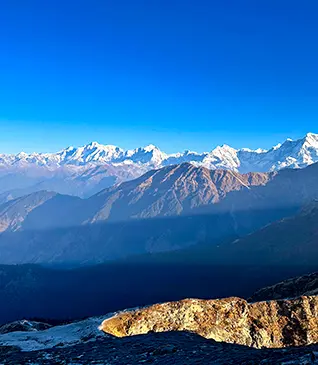
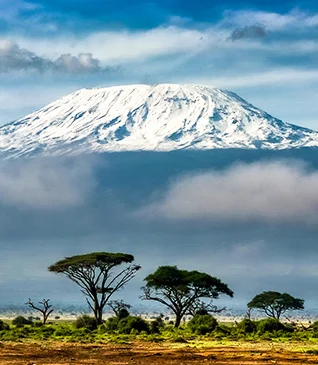
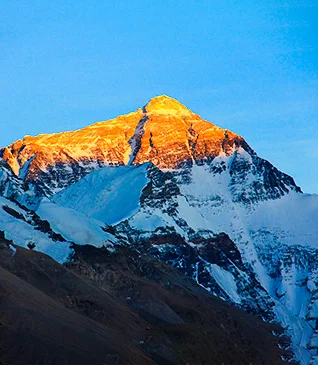
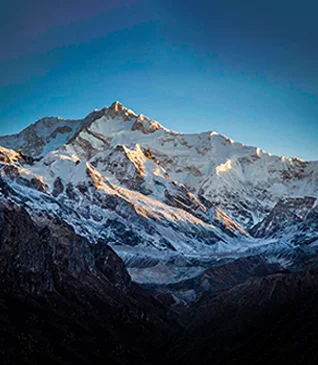
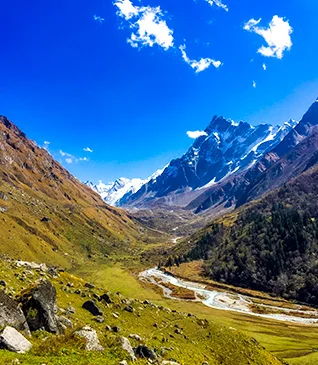
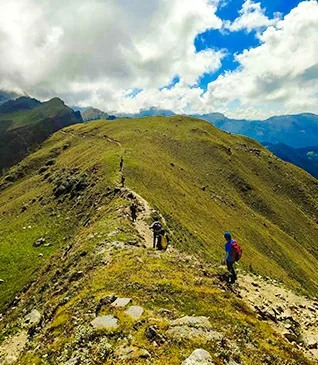
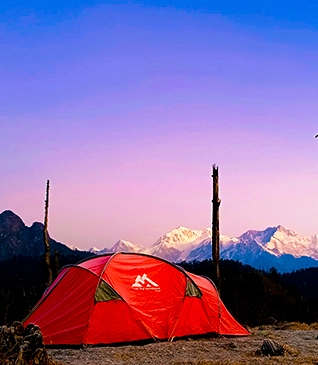
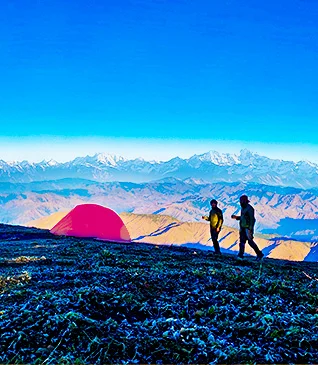
.webp)
.webp)
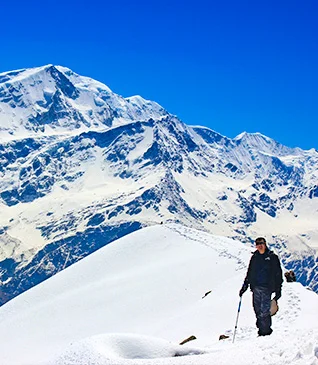
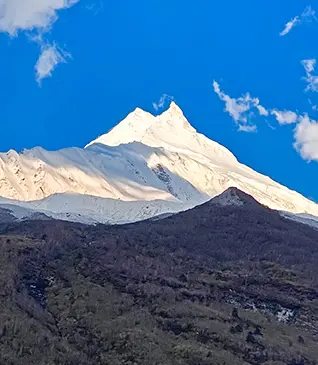
.webp)
.webp)
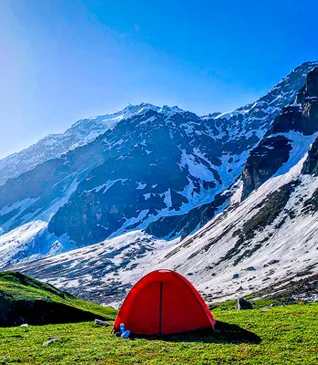
.webp)
